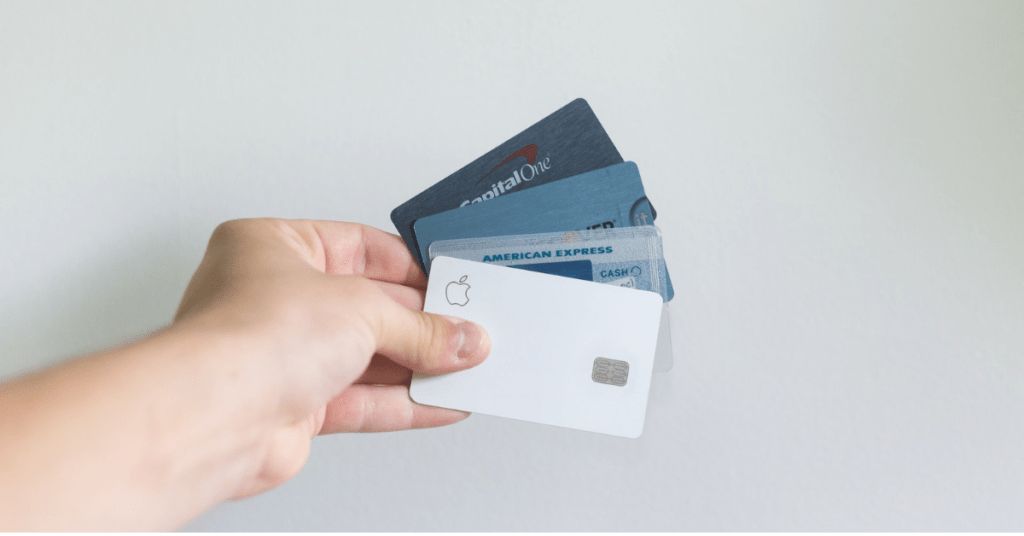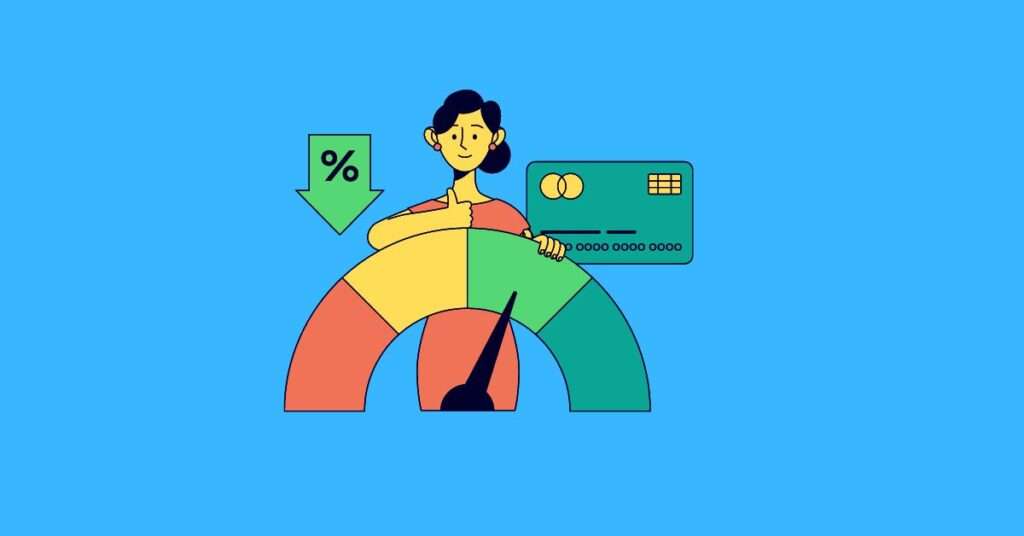Table of Contents

Having multiple credit cards good or bad? That’s a important question, isn’t it? In today’s fast paced world, credit cards have become an integral part of our lives. These plastic cards offer convenience, flexibility, and a range of benefits. In India, the credit card market is expanding rapidly. Different e-commerce websites offer discounts on some specific credit cards. As a result, many people find themselves wondering whether having multiple credit cards is good or bad in India. In this article, we will explore the advantages and disadvantages of having multiple credit cards in India, so that you can decide having multiple credit cards good or bad for you .
I. Introduction
Credit cards are financial tools that allow individuals to borrow money from a financial institution up to a predetermined credit limit. This borrowed money can be used for making purchases, paying bills, or withdrawing cash. In India, credit cards have gained popularity due to their convenience, rewards programs, and the ability to build a positive credit history.
II. Pros of Having Multiple Credit Cards
Increased credit limit
One of the primary advantages of having multiple credit cards is the potential to increase your overall credit limit. With higher credit limits, you have greater purchasing power and can make larger transactions when needed. This can be especially beneficial for significant expenses, such as home repairs or travel arrangements.
Better utilization of credit
Having multiple credit cards allows you to distribute your expenses across different cards, effectively lowering your credit utilization ratio. Credit utilization is the percentage of your available credit that you are currently using. By keeping your credit utilization low, ideally below 30%, you can positively impact your credit score and demonstrate responsible credit management.
Diversification of rewards and benefits
Different credit cards offer various rewards and benefits programs, such as cashback, airline miles, or discounts on specific categories of purchases. By having multiple credit cards, you can take advantage of different rewards programs and maximize the benefits you receive. For example, one credit card may provide excellent rewards for travel expenses, while another offers cashback on dining and entertainment.
Emergency backup
Having multiple credit cards can serve as a financial safety net during emergencies. If one card is lost, stolen, or temporarily blocked, you can rely on your other cards to meet your immediate financial needs. This redundancy provides peace of mind and ensures that you are not left stranded without access to funds.
Keep in mind all these pros when you consider if having multiple credit cards good or bad.
III. Cons of Having Multiple Credit Cards
Difficulty in managing multiple payments
With multiple credit cards, it becomes essential to keep track of various due dates, minimum payments, and billing cycles. Failure to make timely payments can result in late fees, penalties, and even damage to your credit score. It requires discipline and organization to manage multiple credit cards effectively.
Potential for overspending and debt accumulation
While having multiple credit cards offers increased spending power, it also raises the risk of overspending and accumulating debt. With each credit card representing a separate line of credit, it becomes easier to lose track of your overall financial obligations. This can lead to financial strain and the need for debt consolidation or restructuring.
Impact on credit score
One common concern when it comes to having multiple credit cards is its potential impact on credit scores. Opening several credit card accounts within a short period can lower your average account age and increase the number of inquiries on your credit report. These factors may have a temporary negative impact on your credit score. However, with responsible credit management, the long-term effects can be minimized.
Annual fees and charges
Most credit cards come with annual fees, joining fees, or other charges. Having multiple credit cards means bearing the financial burden of these fees for each card. It is crucial to assess the value of the rewards and benefits offered by each card against the costs involved to ensure that you are getting the most out of your cards.
Keep in mind all these cons when you consider if having multiple credit cards good or bad.
IV. Factors to Consider when Having Multiple Credit Cards
Before deciding whether having multiple credit cards good or bad, it is essential to evaluate your personal financial situation and consider various factors that can impact your credit and overall financial well-being. Some key factors to consider include:
Personal financial situation
Assess your income, expenses. Consider whether you can make timely payments, pay off balances in full, and avoid falling into a debt trap. Then you can have an idea whether having multiple credit cards good or bad.
Credit utilization ratio
Evaluate your current credit utilization ratio and how having multiple credit cards will affect it. Aim to maintain a low credit utilization ratio to demonstrate responsible credit management.
Credit score impact
Understand the potential short-term and long-term impact on your credit score. Research how opening new credit card accounts may affect your credit history and take steps to mitigate any negative consequences.
Rewards and benefits analysis
Analyze the rewards and benefits offered by each credit card you are considering. Assess how well they align with your spending habits, lifestyle, and financial goals. Choose credit cards that provide the most significant value and benefits for your specific needs.
V. Tips for Managing Multiple Credit Cards
When you decided if having multiple credit cards good or bad, it is essential to manage them effectively to avoid financial pitfalls. Here are some practical tips to help you navigate the world of multiple credit cards:
Set a budget and track expenses
Create a budget to manage your overall finances, including your credit card expenses. Track your expenses regularly and ensure that they align with your budgetary constraints.
Automate payments and avoid late fees
Consider setting up automatic payments for your credit card bills to avoid missing due dates and incurring late fees. This ensures timely payments and helps maintain a positive credit history.
Regularly review credit card statements
Thoroughly review your credit card statements each month to check for any unauthorized transactions or errors. Promptly report any discrepancies to your credit card issuer for resolution.
Utilize online banking and mobile apps
Take advantage of online banking and mobile apps provided by credit card issuers. These tools enable you to monitor your accounts, track spending, and make payments conveniently.
Monitor credit score and report errors
Regularly monitor your credit score and report any errors or discrepancies to the credit bureaus. Keeping an eye on your credit report helps you identify potential issues and take corrective measures in a timely manner.
VI. How Getting a New Credit Card Affects Credit Score

When you apply for a new credit card, it can have both immediate and long-term effects on your credit score. Understanding these effects can help you make an informed decision. Here’s what you need to know:
Initial impact on credit score
Applying for a new credit card leads to a hard inquiry on your credit report. This inquiry can cause a slight temporary dip in your credit score. However, the impact is typically minimal and short-lived, lasting only a few months.
Long-term effects on credit history
Opening a new credit card account adds to your credit history. Over time, a positive payment history and responsible credit utilization can contribute positively to your credit score. Conversely, missed payments or high credit utilization can have adverse effects.
Factors influencing credit score changes
Several factors influence how getting a new credit card affects your credit score. These include your payment history, credit utilization ratio, length of credit history, and the overall number of accounts you have.
Strategies to minimize negative impact
To minimize the potential negative impact of getting a new credit card, consider the following strategies:
- Apply for new credit cards strategically and avoid excessive applications within a short period.
- Maintain a low credit utilization ratio by keeping your balances well below your credit limits.
- Make timely payments on all your credit cards to demonstrate responsible credit management.
- Regularly monitor your credit score and credit report to identify and address any issues promptly.
VII. Conclusion
The decision if have multiple credit cards good or bad in India is a personal one that depends on your financial goals, spending habits, and ability to manage credit responsibly. While multiple credit cards offer benefits such as increased credit limits, rewards, and emergency backup, they also require careful management to avoid overspending, debt accumulation, and negative impacts on credit scores. It is crucial to evaluate your individual circumstances, consider the pros and cons, and make an informed decision that aligns with your financial objectives. Then you can wisely decide if having multiple credit cards good or bad.
VIII. FAQs
- Will having multiple credit cards improve my credit score?
- Having multiple credit cards can potentially improve your credit score if you manage them responsibly. Maintaining low credit utilization, making timely payments, and having a diverse credit mix can positively impact your creditworthiness.
- Can having multiple credit cards help me build a positive credit history?
- Yes, having multiple credit cards can help you build a positive credit history. By using your cards responsibly and making timely payments, you can establish a track record of responsible credit management.
- Should I cancel old credit cards when getting a new one?
- Canceling old credit cards should be done cautiously. Closing an old credit card account can shorten your credit history and potentially impact your credit score. Consider keeping old accounts open unless there are compelling reasons to close them.
- How can I choose the right credit cards for my needs?
- When choosing credit cards, consider your spending habits, lifestyle, and financial goals. Look for cards with rewards and benefits that align with your preferences. Additionally, compare fees, interest rates, and other terms and conditions to make an informed decision.
- What steps can I take to improve my credit score?
- To improve your credit score, focus on making timely payments, maintaining low credit utilization, and avoiding excessive credit inquiries. Regularly monitor your credit report for errors and take steps to rectify any inaccuracies.
Pingback: How to Save Money from Your Salary Every Month in India - justwittyfinance.com
Pingback: how to use credit card for EMI online shopping: A Comprehensive Guide (2023) - justwittyfinance.com
Pingback: How to Pay Personal Loan EMI Payment Through Credit Card: A Comprehensive Guide (2023) - justwittyfinance.com
Pingback: How to beat inflation in India? (2024) - justwittyfinance.com